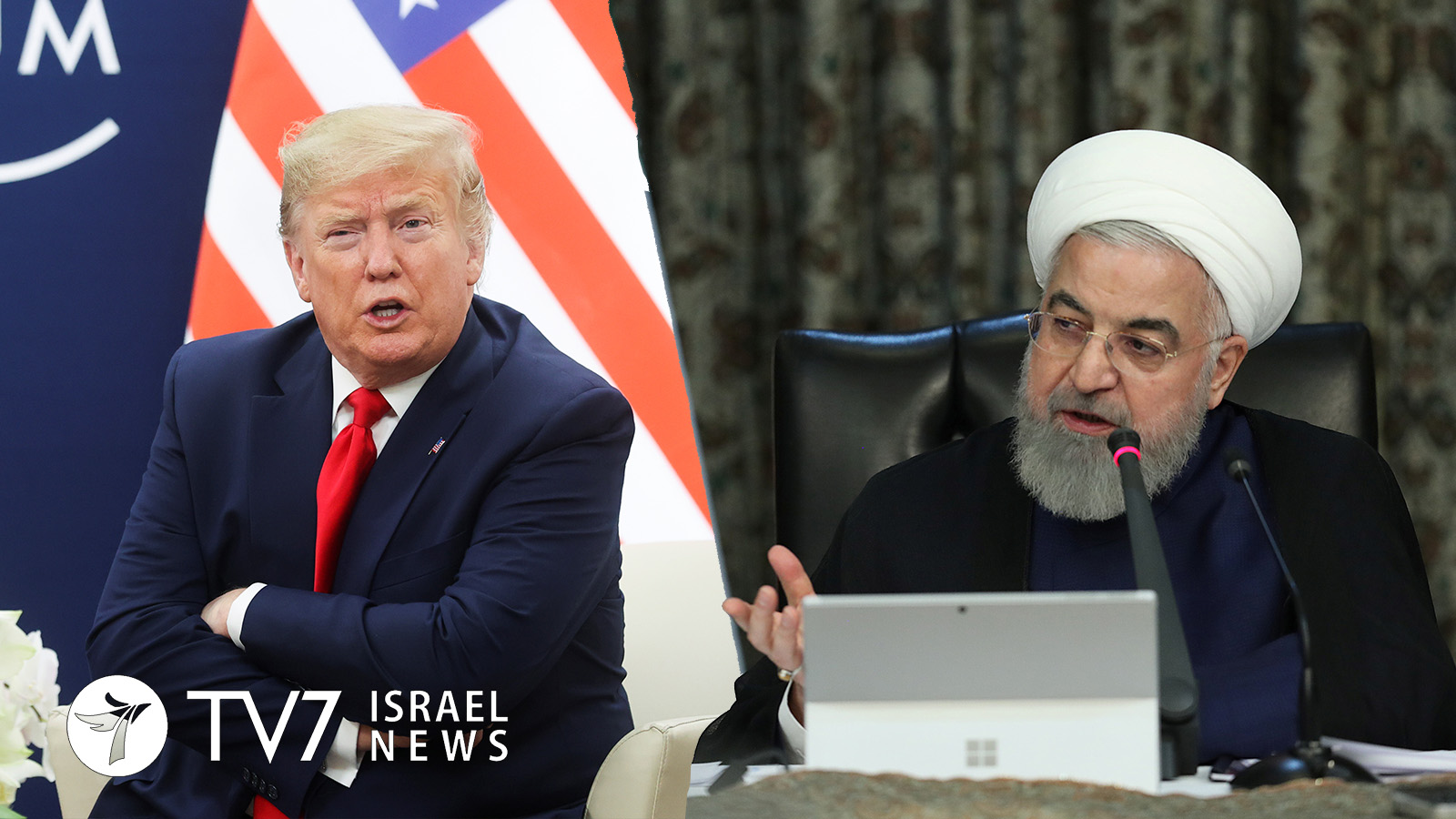Iranian President Hassan Rouhani threatened the United States with a “crushing response” if it were to move ahead with plans to extend an international embargo on Iran’s trade of conventional weapons.
The embargo in question is due to expire in October of this year; yet under United Nations Resolution 2231 – if the Islamic Republic is in breach of its nuclear-related commitments, and thus an extension of the arms embargo is possible. The U.N. resolution in question is the only legal document that technically backed the 2015 nuclear deal with Iran, which was never signed by any of the parties involved. This is why the Iranians insist that the Trump Administration is no longer a party to the deal, consequently claiming it has no legal grounds to thwart Tehran’s aspirations to acquire conventional weapons.
According to Iranian President Hassan Rouhani, “The Americans have woken up and realized they have made a big mistake by leaving the nuclear deal. They know it was a foul move to tear up the JCPOA (Joint Comprehensive Plan of Action). They see that they are stuck, they can’t go back and there is no way forward.”
President Rouhani further stressed that unless the United States lifts all its imposed sanctions and compensates for what he views as ‘America’s mistakes’, the Islamic Republic will not accept Washington’s renewed involvement. “For the Americans, there is no JCPOA (to go back to). It is over. Unless they (U.S.) come back and make a request and we (Iran & P4+1) consider it and decide to accept it, only if America compensates for all of its mistakes. If America wants to return to the deal, it should lift all the sanctions.”
Meanwhile in Washington, U.S. President Donald Trump has vetoed a resolution that would have limited his ability to wage war against the Islamic Republic of Iran.
Amid the Trump Administration’s maximum pressure campaign against the Ayatollah regime, in response to Tehran’s expansionist foreign policy that aims ‘to export by all means attainable’ the ideology of the Islamic Revolution to the rest of the world; the U.S. congress, which is controlled by the Democratic party, managed to pass a restraining resolution – titled S.J. Res. 68 – through both the House of Representatives and subsequently through the Republican-controlled Senate.
The Resolution in question sought to oblige President Trump to withdraw all American forces that are engaged in hostilities against the Islamic Republic unless the U.S. Congress would officially declare war or alternately authorize specific use of military force.
It is important to recall that the bill, which was initially introduced by Democratic Senator Tim Kaine, sought to rebuke President Trump for his decision to authorize a strike that killed the commander of the Islamic Republic’s Revolutionary Guards Quds Force Qassem Soleimani. The targeted assassination of the Iranian general, who was responsible for the killing of countless people (including Americans and Europeans), consequently sparked Iranian retaliation that seemingly stoked prospects of a wide-scale’ war. Nevertheless, in spite of repeated attacks against U.S. installations across the region – including three Katjusha rockets that were fired in the direction of a base hosting U.S. forces adjacent to the Iraqi airport yesterday – President Donald Trump refrained from escalating the situation. Instead, the Trump Administration persistently uses its financial power to subdue the Ayatollah Regime and its supporters.
During a State Department press briefing, U.S. Secretary of State Mike Pompeo once again cautioned the international community from doing business with Iranian entities, as many of them are funding the activities of the Islamic Revolutionary Guards. He said, “Last week, the United States sanctioned an individual and his company who were doing business with the IRG(C) Quds Force for years, generating revenue and resources for their terror campaign. Anyone conducting business with Iranian entities should exercise extreme caution to ensure that they are not working with the IRGC.”
The top American also praised “our German friends for banning Hezballah and taking strong action against suspected Hizballah supporters. I hope that all other EU member states will follow.”
In response to a question about Israeli reports vis-à-vis an Iranian military scale back from Syria, Secretary Pompeo noted that the United States has nothing to add regarding the Israeli defense, “But we have been very clear to the Assad regime all along, and to the Russians in Syria: The Iranians need to leave. They need to leave not only the southwest corner that has a direct and real impact on Israel and risks to the Golan, but more broadly throughout the country.”
Secretary Pompeo further highlighted Iran’s responsibility for many of the atrocities that occurred during the years-long conflict in Syria – as well as the consequences there-of, arguing that “The very terror regime that we talk about in the Islamic Republic of Iran has got a campaign that supports what Assad has done that has brutalized and destroyed the lives of hundreds of thousands, caused six or seven million people to have to flee Syria. The Iranian regime is responsible for that in the same way that the Syrian regime is. We hope that they’ll rethink that and get back to doing what Iran needs to do, which is to take care of its own people in this very difficult time inside the Islamic Republic of Iran. We think those resources could be much better used to support the Iranian people.”
